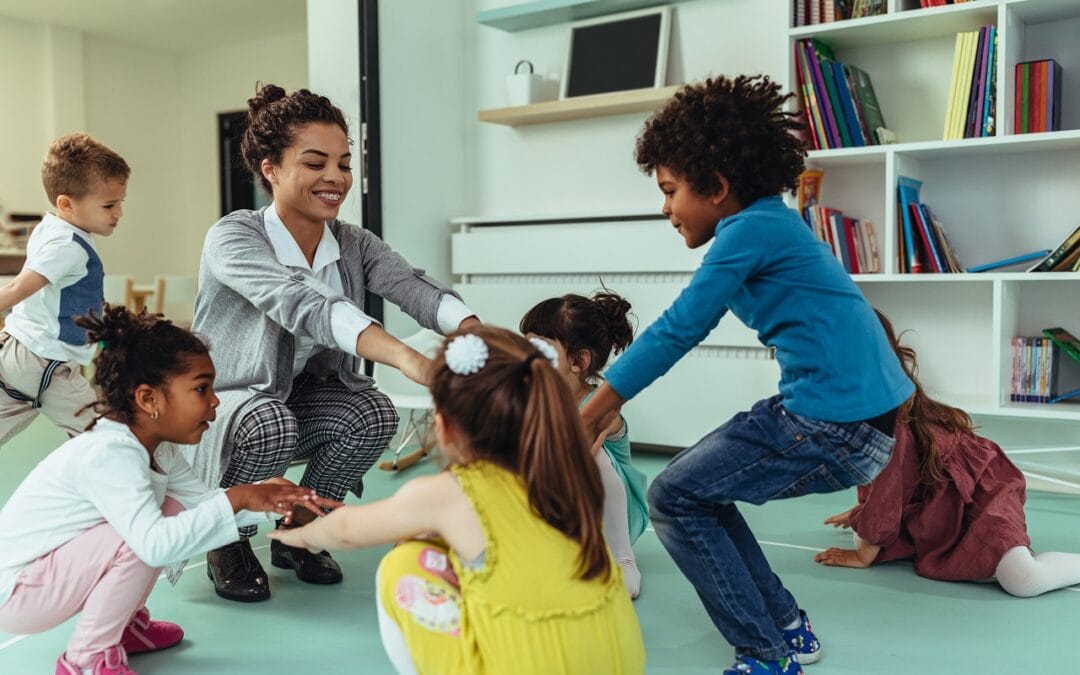Play is an essential aspect of childhood and a powerful tool for learning, development, and self-expression. At our multi-disciplinary studio, we understand the transformative power of play and its role in fostering children’s growth, well-being, and success. To this end, we are proud to integrate play-based learning into our therapy services, merging the joy of play with evidence-based therapeutic strategies to support children’s holistic development across communication, social, emotional, and cognitive domains. In this article, we will delve into the benefits of play-based learning in therapy, discussing the various ways in which we incorporate play into our services and its impact on the children we serve.
The importance of play in children’s lives cannot be overstated, as it is through play that children explore, discover, and make sense of the world around them. Research shows that play-based learning has a significant positive impact on children’s cognitive, social, emotional, and physical growth, serving as a natural medium through which children can develop critical skills and competencies. By integrating play into therapy, we not only make learning enjoyable and engaging, but we also encourage children’s innate curiosity and motivation.
In our multi-disciplinary studio, we incorporate play-based learning into various aspects of our services, including speech therapy, occupational therapy, literacy development, and social skills support. Our play-based approach, grounded in evidence-based practices, offers children the opportunity to practice and develop essential skills within the context of engaging, meaningful activities, ensuring a balanced and developmentally appropriate experience.
Benefits of Play-Based Learning
Incorporating play-based learning into therapy offers numerous benefits for children’s development and well-being:
- Enhanced Engagement: Play enables children to immerse themselves in enjoyable, captivating activities, increasing their enthusiasm and engagement in the learning process.
- Holistic Development: Play-based learning supports children’s growth across cognitive, social, emotional, and physical domains, contributing to well-rounded development.
- Natural Skill Development: Children develop essential skills and competencies through play in an organic, intuitive manner, fostering a strong foundation for lifelong learning.
- Increased Motivation: When children experience the joy of play, they become intrinsically motivated to learn, ensuring a solid foundation for academic and personal success.
Play-Based Learning in Speech and Language Therapy
In our speech and language therapy services, play-based learning is a valuable tool for promoting children’s communication development:
- Language-rich Play: We design language-rich play activities that encourage children to listen, speak, and engage in conversation, building essential vocabulary and language comprehension skills.
- Imaginative Play: We utilize imaginative play scenarios to develop children’s narrative and storytelling abilities, promoting critical thinking and creative expression.
- Social Interaction: Through play, we facilitate opportunities for children to practice their social communication skills, such as turn-taking, perspective-taking, and non-verbal cues.
Play-Based Learning in Occupational Therapy
Our occupational therapy sessions also incorporate play-based learning to support children’s physical, sensory, and cognitive development:
- Sensory Play: Sensory play experiences allow children to explore different textures, sounds, and other sensory inputs, fostering sensory processing and integration.
- Fine Motor Play: Engaging in fine motor activities, such as manipulating small objects or using tools, supports the development of hand strength, dexterity, and coordination.
- Gross Motor Play: Gross motor play activities, like climbing, jumping, or balancing, promote physical strength, coordination, and body awareness.
- Problem-solving Play: Problem-solving and puzzle-like activities develop cognitive skills, attention, and perseverance, supporting children’s abilities to overcome challenges.
Play-Based Learning in Literacy Development
We leverage play-based learning to foster children’s literacy skills and promote a lifelong love of reading and writing:
- Alphabet Play: Engaging in multisensory activities that involve letter recognition and formation supports children’s understanding of the alphabet and its connection to sounds.
- Phonological Awareness Play: Rhymes, songs, and word games provide a playful approach to developing essential phonological awareness skills, such as segmenting and blending sounds.
- Storytelling Play: Engaging in imaginative play allows children to create their own stories and develop their narrative skills, fostering creativity and comprehension.
Play-Based Learning in Social Skills Support
Our social skills development programs use play-based learning to enhance children’s emotional regulation, interpersonal skills, and social cognition:
- Emotional Expression Play: By engaging in role-playing games and activities, children can practice recognizing, understanding, and expressing emotions in a safe and supportive environment.
- Cooperative Play: Group play activities support the development of essential social skills, such as collaboration, negotiation, and empathy.
- Social Problem-Solving Play: Play scenarios that require conflict resolution and problem-solving provide opportunities for children to practice and develop critical social intelligence skills.
The Role of Parents and Family Members in Play-Based Learning
Parents and family members play a crucial role in supporting their children’s learning and development through play in the home environment:
- Create Opportunities for Play: Encourage open-ended play by providing a variety of toys, materials, and spaces that allow for different types of play, such as imaginative, constructive, and physical play.
- Engage in Play: Participate in play with your child when possible, offering guidance, encouragement, and modeling appropriate social and communication skills.
- Foster Exploration: Encourage children’s curiosity by providing opportunities for exploration, experimentation, and discovery during play.
Conclusion
Integrating play-based learning into therapy is a powerful strategy for fostering children’s holistic development, engagement, and joy in learning. Our multi-disciplinary studio is committed to incorporating play into our various therapeutic services, offering children a balanced, developmentally appropriate experience. By leveraging the transformative power of play in speech and language therapy, occupational therapy, literacy development, and social skills support, we create a nurturing environment where children can thrive and excel in all facets of their development. Discover our services and how we can support your child’s growth and success through play-based learning.
We will explore the benefits of play-based learning through therapy and discuss specific ways in which our multi-disciplinary studio incorporates play into our services. We will also address the crucial role parents and family members play in supporting their children’s learning and development through play in the home environment. Contact Watch Me Shine today!

